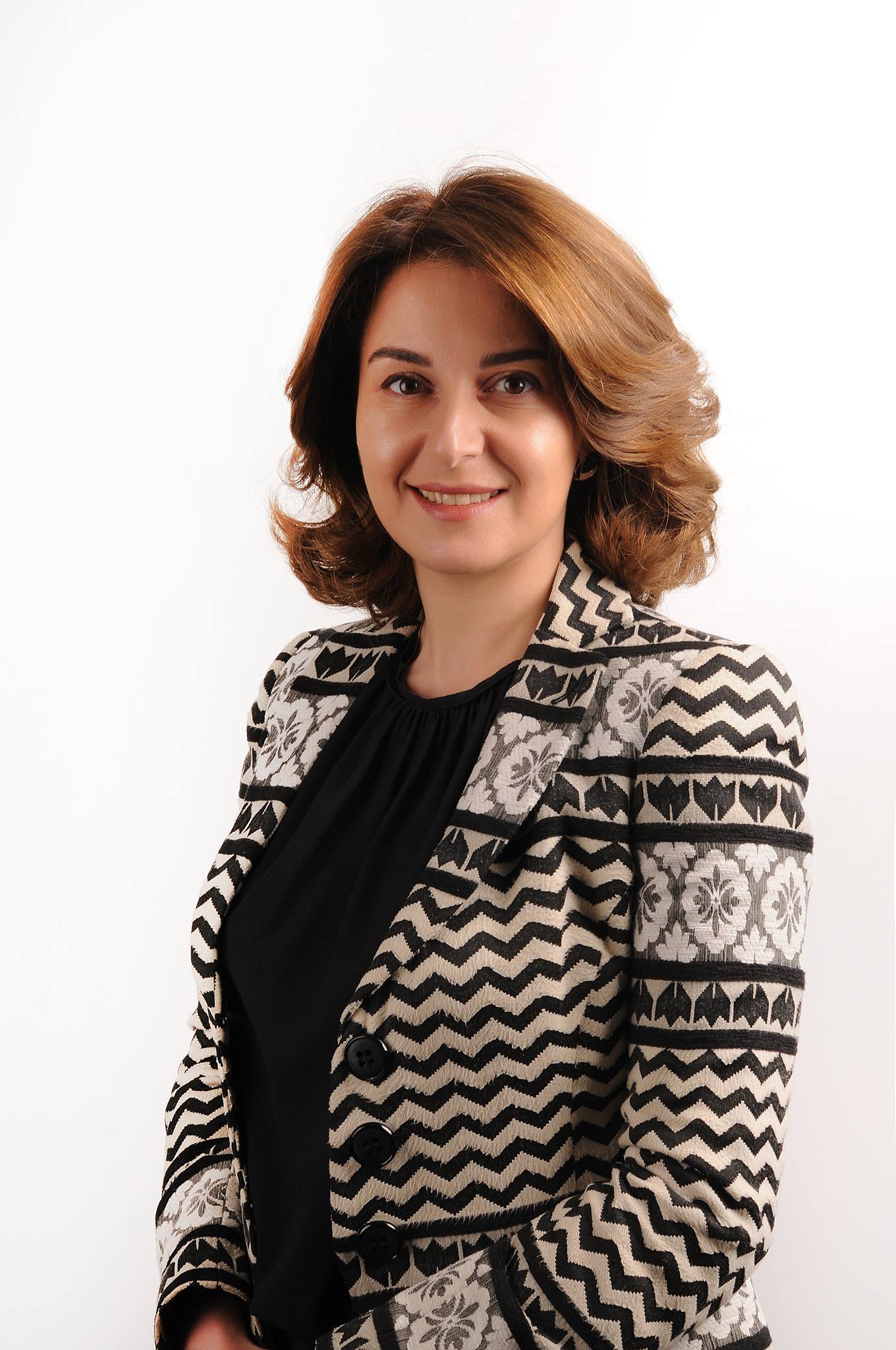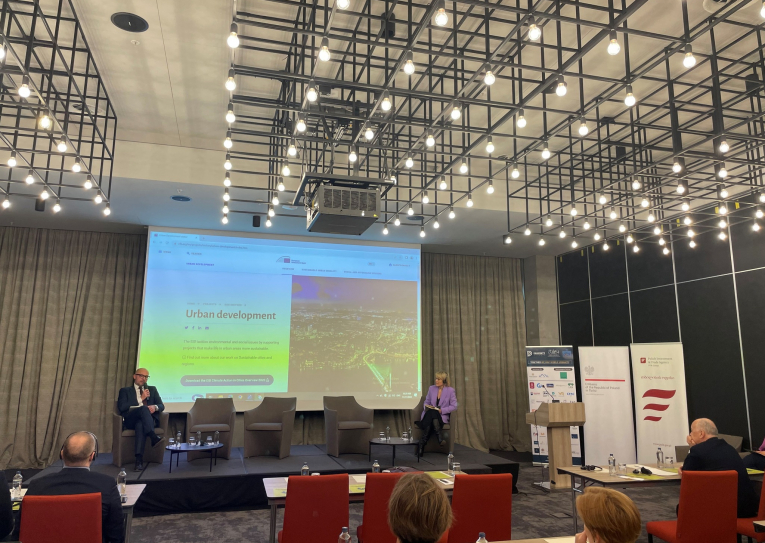Instability regarding the exchange rate of the national currency has caused problems for the real estate business.
The devaluation of the Lari has diminished the capacity of potential buyers to conduct purchases in foreign currency, leading to delays in their decision to purchase real estate. It should also be noted that a large part (more than 60%) of all costs associated with real estate development projects, as well as bank loans, are in foreign currency.
Following from all of the above, one must ask whether or not the plans to denominate real estate prices in Lari are justified.
General Director of Property Georgia Lika Kardava spoke to the heads of several leading local and international real estate companies about these important issues.
Irakli Kilauridze, Managing Director of Colliers International Georgia:

“Instability of the exchange rate has had a negative effect on real estate companies. The majority of potential customers still earn the same salary in Lari, meaning that their capacity to conduct purchases in foreign currency has diminished, especially at a time when the sale of real estate in local currency has become mandatory, while the majority of loan financing is still in foreign currency. Furthermore, a large part of development costs is in foreign currency, and even the part which is in Lari is significantly dependent upon imported raw materials, or is suffering under pressure from stronger foreign currency.
When we speak about the development business, we must take into consideration not only the construction costs, but the full structure of costs associated with development. Thus, 15-25% of the development budget for a residential complex is taken up by the cost of land alone (this varies from one area to another, with the cost of land in central districts being higher). Nearly all transactions for land that is designated for development are conducted in US dollars. Moreover, the costs associated with planning, marketing, loan interests and professional services are almost entirely in US dollars, amounting to a further 12-15% of the development budget. As for the costs associated directly with the construction process, which usually take up 60-65% of the development budget, the ratio here is 55% to 45% in favour of the Lari. However, since a significant part of this section is taken up by the payment of salaries, it too is suffering from the devaluation of the local currency. To summarise, between 60% and 75% of the total development budget for a project in Tbilisi (depending on the district) is attached to the US dollar, while the remaining 25-40% is also sensitive with regards to the exchange rate of the Lari.
The development budgets for other types of real estate (hotels, offices, shopping malls, etc.) are even more tightly attached to the US dollar, since a larger share is taken up by professional services, loan interests, decorating materials, mechanic and electric items, etc.
From a developer’s point of view, it is important for the income currency on the one hand, and for the costs and funding (capital, loans) currency on the other, to be one and the same, in order to minimise currency risks. If regulations make it mandatory for developers to conduct sales in local currency, then mortgage loans should also be issued in Lari, and the funding of the development projects by the banks should be in Lari as well. Local banks do not usually issue funding in Lari at all, or they do so at high interest rates, thereby increasing the costs both for the buyer (in case of mortgages) and the developer (in case of project funding). In a highly competitive climate, this leads to a decrease in profitability, which in turn diminishes the attractiveness of this sector for the investors. As for the international financial institutions, they conduct funding in foreign currency, which will pose high risks for the developers if prices become fixed in Lari. Essentially, this regulationwill hinder the flow of foreign investment to the real estate sector.
With regards to the commercial real estate developers, we believe that the situation is even graver here. If office or shopping mall developers are forced to fix rental prices in Lariand to change existing contracts accordingly, at a time when they receive funding in foreign currency, then the devaluation of the Lari will create a risk of the projects being unable to service foreign currency debts, or having to do so at the expense of diminished income, which will naturally render this sector less attractive for foreign investors.”
Giorgi Kapanadze – General Director of AXIS:

“The instability of the Lari is having an unequivocally negative effect, as real estate priced in US dollars becomes more expensive for buyers who receive their income in local currency. Unfortunately, this leads to a decrease in purchasing power. Ultimately, this environment will have a negative effect on demand.
With regards to building materials and costs associated with development projects, these depend upon the company’s orders and the project’s characteristics. There have been cases of specific construction projects having been completed using 80% Georgian materials, while at other times, a similar proportion of imported materials is used. For example, Georgian-produced embedded reinforcement is frequently being used in construction. AXIS predominantly uses materials purchased in foreign currency for its high-value projects – effectively, only the concrete is Georgian.
Denominating real estate prices in Lari would be justified if the banking sector was to take helpful steps on its part, offering the developers financial resources in national currency at favourable terms. We have been informed that according to the ‘Larization’plan, in case of long-term acquisition contracts it will be possible to attach real estate price to a certain index, which will mitigate risks both for the buyer and the developer.”
Mariam Asatiani – Owner of Remax-Capital:

“It is not so much the devaluation of the Lari that has had a shock effect on the real estate market, as the instability of the exchange rate. Fluctuating exchange rates have an unequivocally negative effect, and will hinder the buyer’s decision to purchase real estate for a certain period, until the exchange rate is stabilised. As soon as a certain degree of stability is achieved, however, the buyer will once again start planning the purchase. Naturally, rising mortgage prices have also had a negative effect, although since the banks have started offering improved loan terms in Lari, and have even offered multi-year fixed exchange rates to the market, this problem has also been resolved more easily.
The devaluation of the Lari will clearly have a negative effect on a construction project’s business plan, should the building materials be purchased in US dollars, while the sale of the real estate property is conducted in Lari.
I believe that the initiative to fix the prices of real estate in Lari will be almost impossible to implement, as it would lead to the changing of prices on an almost daily basis. It would complicate the pricing and sales process, possibly also leading to a slight rise in prices as developers and property owners will want to insure themselves by fixing prices at the highest expected exchange rate mark.”





